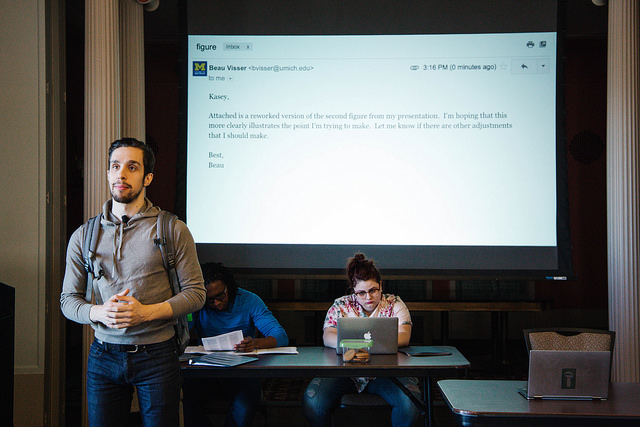
Managing Mentoring: Cultivating Successful Mentoring Relationships in STEM Labs provides an in-depth examination of multiple mentoring interactions occurring in a lab group. The session interweaves facilitated discussion with a theatrical case study depicting exchanges between graduate students, a postdoc, and a PI. Throughout, participants consider how mentoring relationships (both mentor-mentee and peer-to-peer) are set-up, developed, and maintained in a lab environment. In addition to exploring common challenges to navigating these high stakes relationships, participants discuss role-specific strategies for strengthening mentoring interactions and cultivating mutually beneficial relationships.
The typical session length is 120 minutes. Managing Mentoring is only offered as an in-person session.
In this session, graduate student participants will:
- Identify mentor roles and responsibilities.
- Consider the challenges and opportunities the lab environment provides for developing productive and mutually beneficial relationships, with particular attention to power dynamics and social identity.
- Explore strategies mentees can employ that anticipate and respond to common mentoring challenges.
- Reflect on their own potential practices as a mentee and peer mentor.
In this session, faculty participants will:
- Consider the challenges and opportunities the lab environment provides for developing successful and mutually beneficial mentoring practices, with particular attention to power dynamics and social identity.
- Generate strategies for leveraging peer and near-peer mentoring effectively.
- Identify useful tactics for providing feedback tailored to the varied needs of different learners.
- Reflect on their own practices as mentors with the aim of determining possible growth areas.
- 213 views



